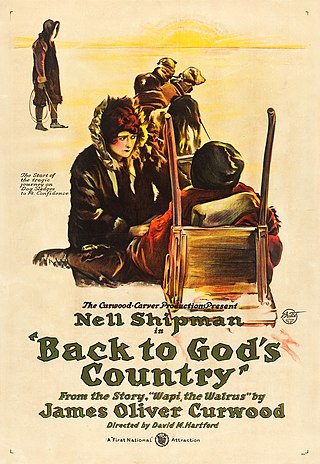| Part of a series on the |
| Cinema of Canada |
|---|
 |
| List of Canadian films |
This is a list of Canadian films which were released in 1972:
| Part of a series on the |
| Cinema of Canada |
|---|
 |
| List of Canadian films |
This is a list of Canadian films which were released in 1972:

Philip Michael Ondaatje is a Sri Lankan-born Canadian poet, fiction writer and essayist.

Cinema in Canada dates back to the earliest known display of film in Saint-Laurent, Quebec, in 1896. The film industry in Canada has been dominated by the United States, which has utilized Canada as a shooting location and to bypass British film quota laws, throughout its history. Canadian filmmakers, English and French, have been active in the development of cinema in the United States.
Wow is a 1969 Québécois film directed by Claude Jutra, produced by the National Film Board of Canada.
The Adventure of Faustus Bidgood is a 1986 surreal Canadian comedy film directed by Andy Jones and written by Andy and Mike Jones, with the collaboration of a number of workshop participants. It stars Andy Jones and Greg Malone.

Colonel Charles Perry Stacey was a Canadian historian and university professor. He served as the official historian of the Canadian Army in the Second World War and published extensively on military and political matters.

This is a bibliography of major works on the History of Canada.

Back to God's Country is a 1919 Canadian drama film directed by David Hartford. It is one of the earliest Canadian feature films. The film starred and was co-written by Canadian actress Nell Shipman. With an estimated budget of over $67,000, it was the most successful silent film in Canadian history.
High is a film released in 1967, directed by Larry Kent and starring Lanny Beckman, Astri Thorvik, Peter Mathews, Joyce Cay, and Denis Payne. Filmed in Montreal, it is likely most-remembered for being banned by the censors of Quebec immediately before its scheduled premiere at the Montreal International Film Festival for its use of drugs, nudity, and explicit sex scenes.

Pour la suite du monde is a 1963 Canadian documentary film produced by the National Film Board of Canada and directed by Michel Brault, Marcel Carrière and Pierre Perrault. It is the first of Perrault's Isle-aux-Coudres Trilogy: Le règne du jour followed in 1967, Les voitures d'eau in 1968.
Who Has Seen the Wind is a 1977 Canadian drama film directed by Allan King and written by Patricia Watson. The film is an adaptation of W. O. Mitchell's influential novel Who Has Seen the Wind. It was the first narrative feature film ever directed by King, who was previously known primarily as a documentary filmmaker.
Hiawatha, the Messiah of the Ojibway is a 1903 dramatic short film shot in Canada directed by the American pioneering cinematographer and director Joe Rosenthal, based on the Henry Wadsworth Longfellow's famous poem, The Song of Hiawatha, made in Desbarats, Ontario, with a cast of Ojibway First Nations people. According to the Canadian Journal of Film Studies, it was the first dramatic narrative film to be shot in Canada.
Guy Glover was a senior National Film Board of Canada (NFB) producer and administrator.
William Davidson (1928-2009) was a Canadian director, producer and writer whose career included work with the National Film Board of Canada, the Canadian Broadcasting Corporation and independent features. He is noted for directing the early English-Canadian movie Now That April's Here (1958) and producing the TV series The Forest Rangers (1963–65) and Adventures in Rainbow Country (1970-71).
The River Schooners is a 1968 Canadian documentary, produced by the National Film Board of Canada and directed by Pierre Perrault. The third and final film in his "Île-aux-Coudres Trilogy" after Pour la suite du monde and The Times That Are , the film portrays workers in L'Isle-aux-Coudres, Quebec, who are employed in the traditional but fading art of building wooden schooners.